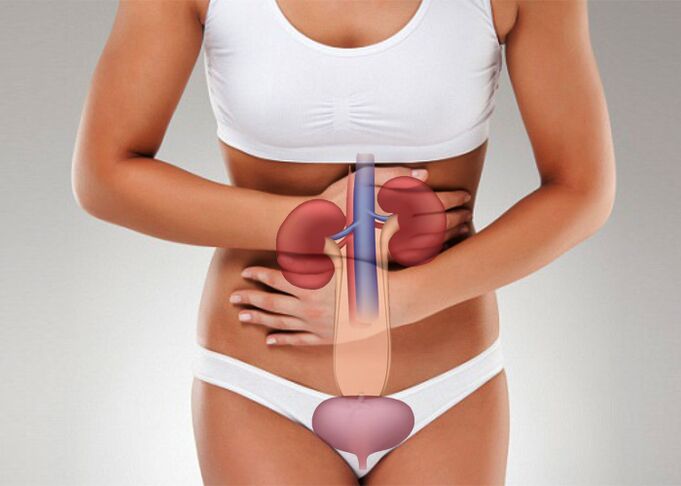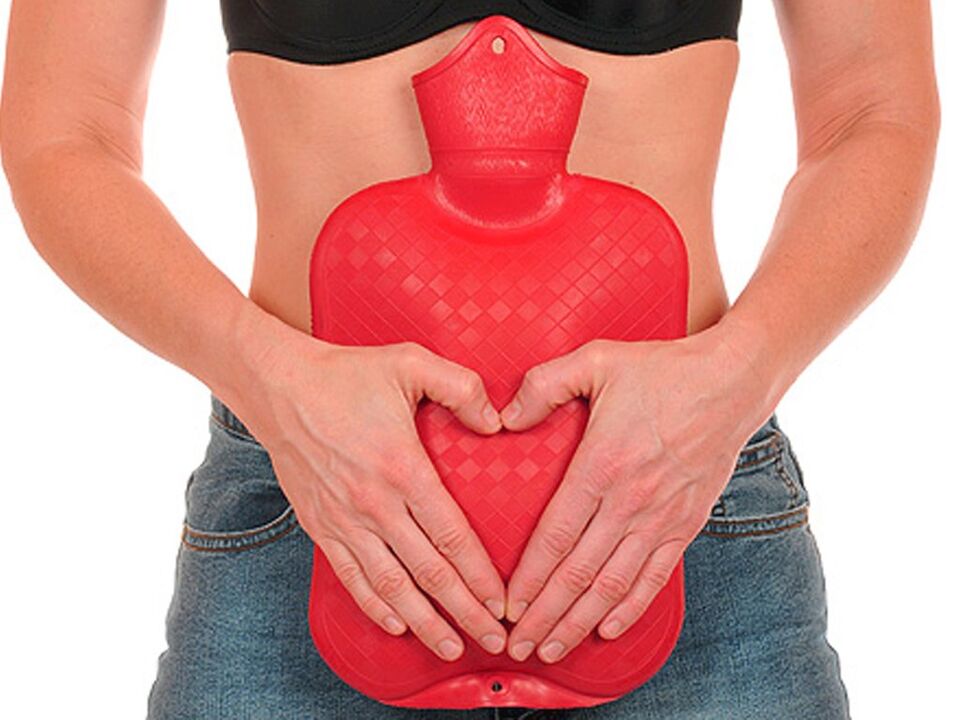In the urinary system, the bladder plays the role of a collector's accumulation collector: the exhausted products of blood filters come from the kidneys through ureters.It is thanks to the bladder and two muscle rings, one of which obeys the conscious commands of the central nervous system, a healthy person can perform urination if necessary, necessity and opportunities.The "possibility" in the early stages of evolution means, first of all, a safe atmosphere;With the advent and development of human civilization, urination began to request special conditions, that is, a breakdown of social activity, a specially designed place and/or a solitude from representatives of the opposite sex.

Cystitis is an inflammatory process on the internal walls of the bladder;A disease that causes pronounced physiological and psychological discomfort, as well as a certain social disdainment.A person of any age and sex can face this misfortune, but it is not a coincidence that cystitis is sometimes called a curse of a modern woman (it would be more correct to say "one of the curses", since this is not the only disease).The main reason lies in anatomy: compared to the male female urethra (urethra) it is much shorter, more elastic, wider and more straight.This creates extremely convenient "gates" for the penetration of ascending urogenital infections, the prevalence and variety in the modern world is really very large.And although not all cystitis have an infectious nature, it is the mechanism described in its development which is a key factor in the inter-through epidemiological differences: according to different sources, in women of active age, cystitis occurs 6-8 times more often than men.
In general, statistical analysis allows you to evaluate the problem in a variety of corners.Therefore, many sources indicate that at least a single cystitis attack during life is experiencing at least half of all women;At least, each quarter is periodically ill or chronic (some authors even consider this very low data, since not all the sick are looking for a doctor).According to medical documentation, in clinics, among all urological patients, the share of patients with cystitis reaches 67%;In urological hospitals, this indicator is 5-12% (in other words, the percentage of cystitis hospital is also very high, which once again confirms the social meaning of this disease).The frequencies of the acute and chronic forms are about 2: 1.
The difference in the incidence between the floors is leveled in the elderly and senile age: in the more advanced age categories, the percentage of primarily cystitis sick men is comparable to a similar percentage of women.But in a mature, young, young age (and sometimes in a teenager or even), when living, it would seem to rejoice!- Cystitis is waiting and mainly chooses women.
Reasons
From infections, the bladder wall is protected from nature, in principle, quite well;The predominance of cystitis infectiousziology is not due to vulnerability as such, but by a combination of a high probability of infection with external and internal conditions, most of which are in some way connected to the way of life.The main risk factors include any acute and chronic infections in other body systems (from caries and colitis to acute respiratory viral infections -sexual transmission), hypothermia, hypovitaminosis, after surgical exhaustion "and practices does not greet insufficient hygiene (it is difficult to imagine how the abilities and hygiene needs can be insufficient in the 21st century, yet this factor remains this factor.significant). etc. returning to the question of the statistical differences between the sexes, we talk about another, in addition to the Anatomica, the cause of the endocrine, that is, the fluctuations of the hormonal background (in particular, the exacerbations of the cystitis associated with the phase of the menstrual cycle, pregnancy or menopause are considered separately in the literature).

We also notice that the infection can penetrate the bladder not only ascendant, but also descending paths - by the kidney hit by the nephritis.
Non -infectious forms include chemical toxic (including drugs), allergic, radiation, traumatic, parasites.
Symptoms
The classic symptoms of cystitis include, first of all, intensive unease during urination: rubbing, pain, burning, etc.Often, urination leaves the feeling that the bladder is not completely emptied;Many patients complain of a repeated or false impulse, notice the "loss" of linen urine or the imperative nature of the impulse (since, once again, the anatomical reasons are more inherent in women who often "have no time to run" and therefore are constantly constantly remaining closer to the bathroom).In some cases, the anchor or a mixture of blood in the urine is revealed;It should be said that the hematuria is the most dangerous urological symptom and requires an immediate differential diagnosis, since the presence of blood in the urine can be caused not only by cystitis, but also for the causes of life.
It is typical and, as a rule, severely expressed with cystitis of pain syndrome: shooting or wedges, explode or sore in the lower abdomen, often with irradiation in the horse or back.Without such or similar pain, no more than 10% of all cystitis proceeds.With a sufficient immune response, general malaise, fever, weakness, headache are often intense.
The most likely and serious complications of cystitis include its interstitial form so called, when not only the mucous membrane, but also a deeper muscle layer of bubble walls is involved in the inflammatory process (in the end this can cause a wrinkles (py elaborate. Infertility, etc.).
Diagnostics

In addition to a clinical survey and a standard urological inspection (however, many women prefer to treat cystitis not to a urologist, but to "their" gynecologist), laboratory tests are mainly prescribed.To date, many types of methods to detect pathogen are successfully used - as shown above, the most probable cause should always be considered a bacterial, viral or fungal infection.As a diagnostic necessity, ultrasounds are also prescribed, less than cystoscopy, less than cystography, biopsy and other studies.
Diagnostics
In addition to a clinical survey and a standard urological inspection (however, many women prefer to treat cystitis not to a urologist, but to "their" gynecologist), laboratory tests are mainly prescribed.To date, many types of methods to detect pathogen are successfully used - as shown above, the most probable cause should always be considered a bacterial, viral or fungal infection.As a diagnostic necessity, an ultrasound, an internal study of the bladder, a study of X -ray of bladder, biopsy and other studies are also prescribed.
Treatment
Acute cystitis in chronic curves often, easily and insidious: the gradual reduction in symptoms, even its complete disappearance, does not mean recovery at all.Therefore, the signs of cystitis described above in any of their combinations (especially because these symptoms are relating to many other urological diseases) require an immediate visit to the doctor and not the patient's expectations, while "passes".Along the way, we note that a huge number of vouchers, intelligent, friendly, proven for centuries and other similar suggestions on the Internet (where you can find recommendations in the interval from reasonable enough to schizophrenic or fraudulent) is one of the factors of frequent frequent and complications and complications of cystitis.
Based on the results of the diagnostic examination, a particular strictly individual treatment regime is always prescribed, targeted, first of all, to eliminate the cause of the inflammation.In several cases, antibiotics, antiviral drugs, antifungals, immunomodulators and immunostimulants, antihistamines and anti -sneering and antispasmodic drugs may be used.The hygienic -health services of chronic outbreaks of infection in other areas is required, as well as the treatment of cross -country diseases (nephrolithiasis, prostate adenoma, etc.).In addition, a diet are needed, an increase in the intake of liquids and a saving regime to avoid hypothermia and other risk factors.Phytotherapy agents are prescribed exclusively by a doctor and also checks the effectiveness of their administration.
Except for these conditions, cystitis is treated.




























